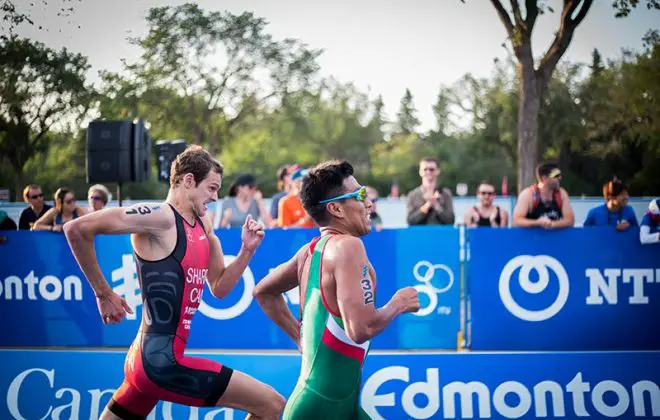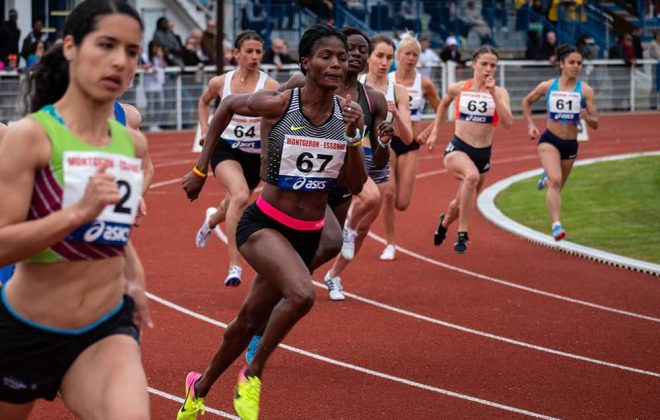9 Easy Ways How Athletes Can Avoid Gaining Weight During Holidays
Holidays are a magical time. Be it Christmas, Easter or even Midsummer – it’s the time for families and friends to get together and enjoy each other’s company. As these gatherings usually happen behind a large table, though, athletes should be careful to avoid gaining weight during holidays.
While in some sports (kayaking, hockey, mountaineering) a little extra weight is not that big of a deal, endurance athletes on the other hand find it difficult to adjust to and carry that additional weight.
Cyclists, runners, triathletes – basically all sports where athletes rely more on efficiency than being able to produce high power for a short period of time are more affected by extra weight.
The problem comes later in the season when these athletes need to get into their optimal race weight. Doing so will require reducing food intake, which puts extra stress on the body and has direct impact on training, recovery & performance.
How to avoid gaining weight during holidays
Holiday season can be a real challenge for the athlete. It’s a test of how good they can control themselves, stay focused on goals and resist temptations.
After all, the whole family comes together. Or it might be a gathering of old friends. Either way, being an outlier is not the most comfortable position to find yourself in, as the peer pressure to engage in unhealthy habits is huge.
Nobody wants to be ‘that person’ who is on a diet, doesn’t eat something, doesn’t drink or goes to bed early, right?
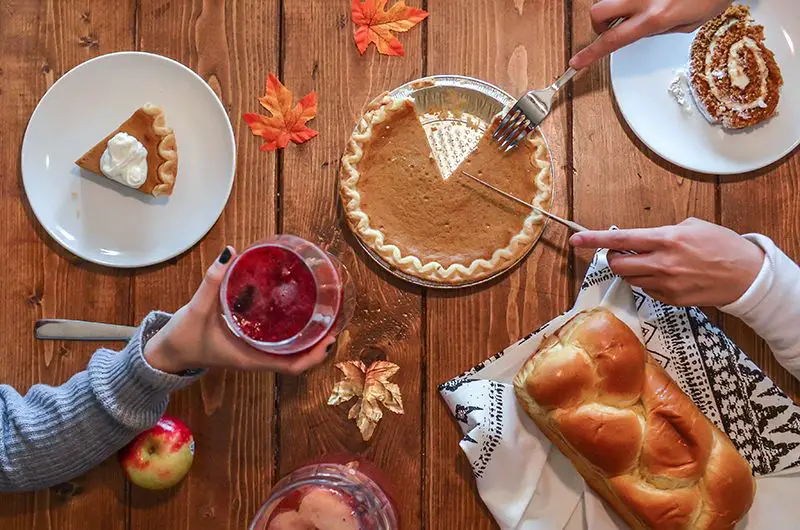
That unhealthy lifestyle – eating too much, relaxing a bit more than is necessary or even skipping some sessions – can set an athlete back much more than expected.
So, how to make sure athletes stay on track with their goals without offending anyone or not looking weird? Below are my 9 tips on how to successfully navigate the season of cheers and avoid gaining weight during holidays.
#1 Maintain the training schedule
Even though it’s holiday time, it’s more important than usual to make an effort to stay active and exercise. Daily being the best option.
Staying disciplined ensures athletes don’t go too crazy on celebrating – be it with food, staying up late or otherwise ‘rewarding themselves’. That one moment of weakness can quickly become two or three and will eventually require more time to regain fitness.
Moreover, exercising consistently keeps metabolism high and preserves mitochondria which improves fat oxidation, keeps athletes lean and improves endurance.
#2 If possible, stay away from sugary and processed foods
Holidays are famous for sweets and other sugary treats – candy, cakes, ice cream and so on. But don’t be fooled, because behind an appealing packaging is a very disappointing story.
Sweet treats (and most pre-packaged foods) contain a lot of added sweeteners in a form of refined sugar – white sugar, corn syrup, glucose fructose syrup, maltodextrin, etc.
Refined sugar substances are empty calories. They have zero nutritional value and are toxic to the body.
Artificial sweeteners promote inflammation across the body, cause increased insulin response which results in food cravings and feeling less energetic. On top of that, refined sugars essentially stop fat metabolism and is one of the reason why athletes put on extra weight.
If possible, bake something yourself using healthier sweeteners, like honey or maple syrup. Make sure to use high quality natural and organic ones (not manufactured or processed), though. These contain lots of antioxidants and minerals that actually support the body, not put more pressure on it.
Read also: Top 10 Endurance Athlete Diet Mistakes And How To Avoid Them
#3 Stock up on fruits and vegetables
It’s no fun to limit yourself during the holidays or even worse – go on a diet. Especially when everyone around you is having a great time.
The way to eating a lot and at the same time not feeling bad or guilty is to eat as many vegetables and fruits as possible. Compared to processed, heavy or carb-rich foods, fruits and vegetables have tons of vitamins & minerals which nourish the body and give it everything it needs. They also contain a lot of fiber, which helps to control blood sugar, satiation and food cravings.
So, instead of pastas, pizzas, cakes, sweets and what have you, focus on salads, grilled and steamed veggies and fruits. And don’t limit yourself.
#4 Take the time to finish a meal
Take pauses while eating to allow the body to process the food. It takes a while for the body to send a signal to the brain that it’s full, so when we eat too fast we often end up over-eating.
Meal time is an opportunity to sit together and enjoy the company – not finish as quickly as possible. In fact, if you don’t rush through the meal you’ll notice you need less food to feel full.
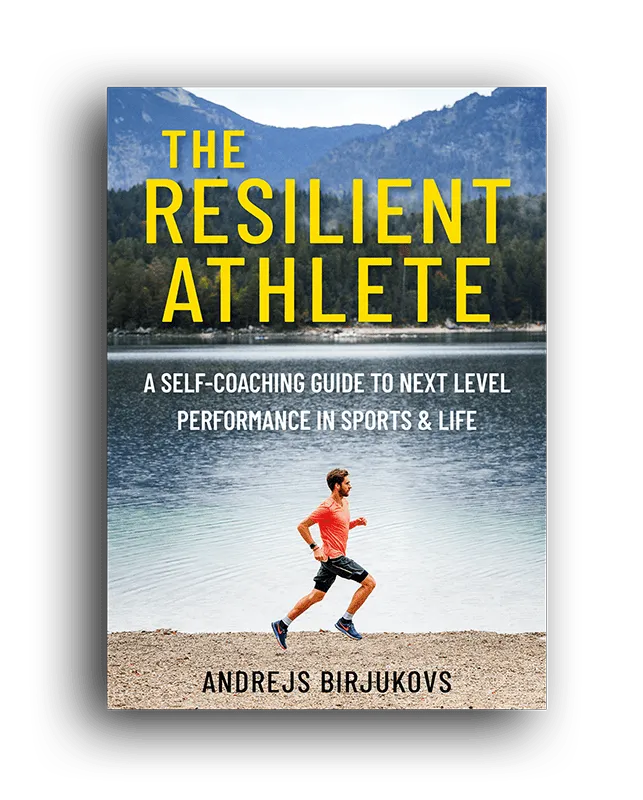
The Resilient Athlete
A Self-Coaching Guide to Next Level Performance in Sports & Life
Are you aiming to become a resilient athlete who is able to withstand any pressure? Be able to jump on any opportunity? Take any challenge life throws at you head on?
Then this book is for you.
Learn more#5 Drink a lot of water
Feelings of hunger and thirst are very similar. In fact, more often than not we choose to grab a snack when our bodies might actually require water.
Many people don’t drink enough water throughout the day and end up being chronically dehydrated. As a result, all of body’s processes slow down and get inefficient – from muscle function and metabolism to recovery and even brain activity.
Drink plenty of water throughout the day, but avoid drinking too much during meal time. That dilutes stomach fluid and slows down digestion.
Read also: How To Become A Better Athlete – 38 Practical & Useful Tips
#6 Do a fully fasted training session the morning after (pro tip)
This one is my top tip on how to avoid gaining weight during holidays.
If you’ve eaten waaay too much the night before (or in general feel sluggish), do a very easy 30 to 60 minute aerobic training session first thing in the morning. Drink a glass of water before that, but don’t eat anything. This will help the body to burn extra calories, speed up the waste disposal, promote hormone secretion and maintain the ability to metabolize fat.
It’s important to keep the intensity low, however. So, don’t go higher than Zones 1 – 2 during these sessions.
What completing a solid training session (which, despite low intensity, this one definitely is) first thing in the morning does is it jump-starts your day, giving you a hormonal and energy boost. It also prevents a downward spiral that some people fall into with several holidays in a row.
After taking care of your body first thing in the morning you’ll be less likely to snack on unhealthy foods, order pizzas or spend the day on the couch. It won’t feel right.
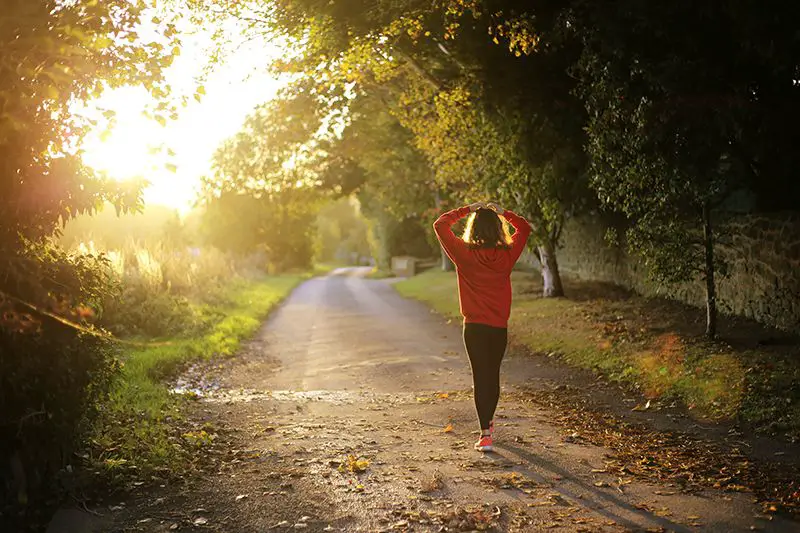
#7 Pair up with someone
Having a buddy can help stay healthy during challenging time and avoid gaining weight during holidays. Being accountable to someone makes wonders in motivating people to stay healthy, adopt new habits, quit bad ones and overall achieve more.
Better yet, get moving with the whole group you’re celebrating holidays with. Play a game of football, go hiking or even on a skiing trip. It’s much more exciting and healthy to do something with your body than staying at home and watching TV all day.
#8 Get plenty of sleep
To make sure the body recovers quickly and is able to burn off all that delicious – but, probably, too much – food, it’s important to get enough sleep.
When we’re fully rested our body is able to regulate blood sugar and navigate food cravings much easier. All of the cookies, late-nights and stress of the holiday season can wear the body down and result in feeling ‘wilted’ in the morning or throughout the day.
Getting quality sleep also refreshes the mind and recharges willpower. That helps to stick to the healthy habits we’ve built and navigate the stress of the holidays much better.
Read also: The Power & Science Of Restorative Sleep For Athletes
#9 Don’t stress about it
Try not to stress too much about potential weight gain and have a positive mindset instead. Being easy on yourself when there’s a lot of external pressure is a good way to reduce mental stress and avoid ’emotional eating’.
Consider taking a recovery week if you feel you won’t have time to get in all required intervals or follow your regular schedule. Train in light aerobic mode and do some mobility and core exercises instead – that doesn’t take much time.
It’s when people don’t take breaks and overfocus on one thing until the point of obsession they stop feeling fulfilled in life and develop destructive thought patterns. Don’t make that mistake – spend the time with family and friends, be present and enjoy it.
Did you find this information useful? Share the post with others using the buttons below.
Have an opinion? Share via links below and tag @theathleteblog
Andrejs Birjukovs
GET A FREE TRAINING PLAN
Subscribe to my email list and get access to a free 4-week “back in shape” training plan
You’ll also get two full-body strength sessions and some other goodies!
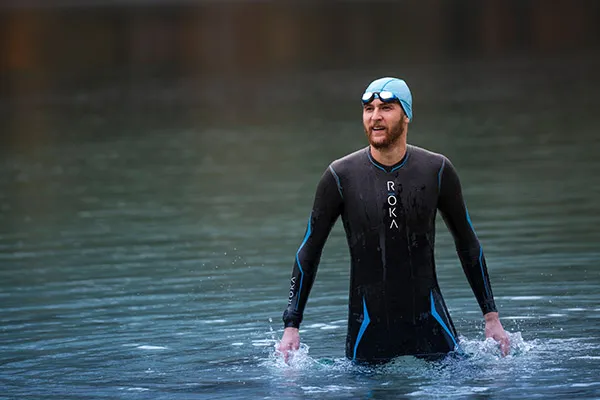
How did I get here?
Hey there! My name is Andrejs and I am here to inspire, entertain and get you fit for any adventure.
I went from being an over trained pro athlete to an endurance coach sharing how to listen to your body and live life to the fullest.
Traveling, new sports & activities brought new meaning to my training and made it much more effective, fun and enjoyable. And I'm here to help you do the same.
